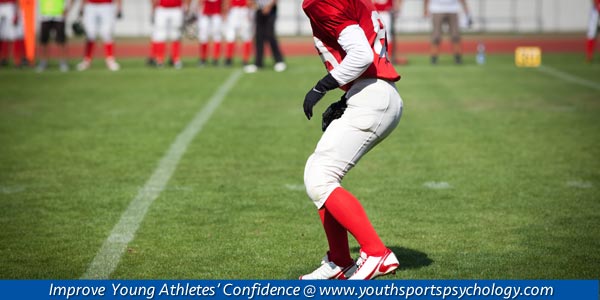Confidence And Talent in Sports Kids
One of our readers recently asked a great question:
Why do hard-working, less talented kids generally get less playing time than the talented athletes who have not-so-great work ethics and attitudes?
Here is what this sports parent had to say:
“My son plays ice hockey and is a goalie,” says our reader, a sports dad. “He is small but very hard working and admittedly less talented than the team’s other goalie but not greatly.”
“The biggest difference between the two goalies is commitment and attitude. The other goalie hasn’t completed a single dry land practice the entire season (five months) and complains and talks back to coaches almost every practice.”
“But guess what? The back-talking kid who doesn’t always come to practice gets more playing time—especially during big games.”
This is a very common issue for athletes and coaches.
Here’s what’s happening:
Kids with talent often are more confident.
They trust in their abilities—especially during big games.
Coaches can trust these kids to get the job done and are more likely to play them. Sure, some coaches are willing to reward hard work with playing time—but not always.
Of course, this doesn’t seem fair. But it offers a learning opportunity for sports kids.
In this situation, what should well-meaning sports parents do?
How can they turn this difficult situation into a life lesson?
It’s okay to begin with a conversation with the coach. Don’t accuse or blame the coach. Be polite and curious. Simply ask the coach what your young athletes need to do in order to get more playing time.
Help your kids understand what the coach is looking for. Be sure the athletes want to work on the skills identified by the coach. Don’t pressure sports kids into doing things they don’t want to do.
Once the athletes have worked on improving their skills, it’s time to focus on how to transfer those skills to a game or competition. This is where we come in…
Being more confident in the game and having trust in one’s skills is key, and this is where the important learning comes in.
Your young athletes need to trust what they learned in practice. This will help them play with more confidence. As we mentioned above, coaches often reward this type of player.
For example, just before a game or competition, help your young athletes get into the “performance mindset.” Help them let go of their thoughts about technique… How they stand or shoot, for example.
They need to trust their instincts, simply react and be more creative. They shouldn’t analyze their performance. Just do it!
They also need to keep high expectations in check. You don’t want them going into a game thinking they are going to score or win big. Instead, they need to focus on process goals. They need to focus on what’s happening at the moment—the next shot, kick or pass.
You’ll be surprised how much these and other tips help boost kids’ confidence before games.
Related Articles on Kids’ Mental Game:
- How Sports Kids’ Mental Game Affects College Recruitment
- Helping Young Athletes Be Team Players
- Helping Sports Kids Build a Growth Mindset
*Subscribe to The Sports Psychology Podcast on iTunes
*Subscribe to The Sports Psychology Podcast on Spotify
Improve Your Mental Game From Anywhere In The World

We’re certain that, as a parent, you want to help your child develop confidence and discipline in sports and life. And as a sports parent, you’d love for your children to reach their potential in sports. But encouraging your child to strive for greatness without pressuring them can be a challenge.
You can get expert mental coaching with us from anywhere. Meet with us via Zoom, Skype, FaceTime or phone call. With today’s video technology, we are able to connect with athletes and coaches all over the globe.
Call Us Today to Schedule Your Free 15-Minute Session.
Find Out How Your Athlete Can Benefit From One-on-One Mental Coaching!

